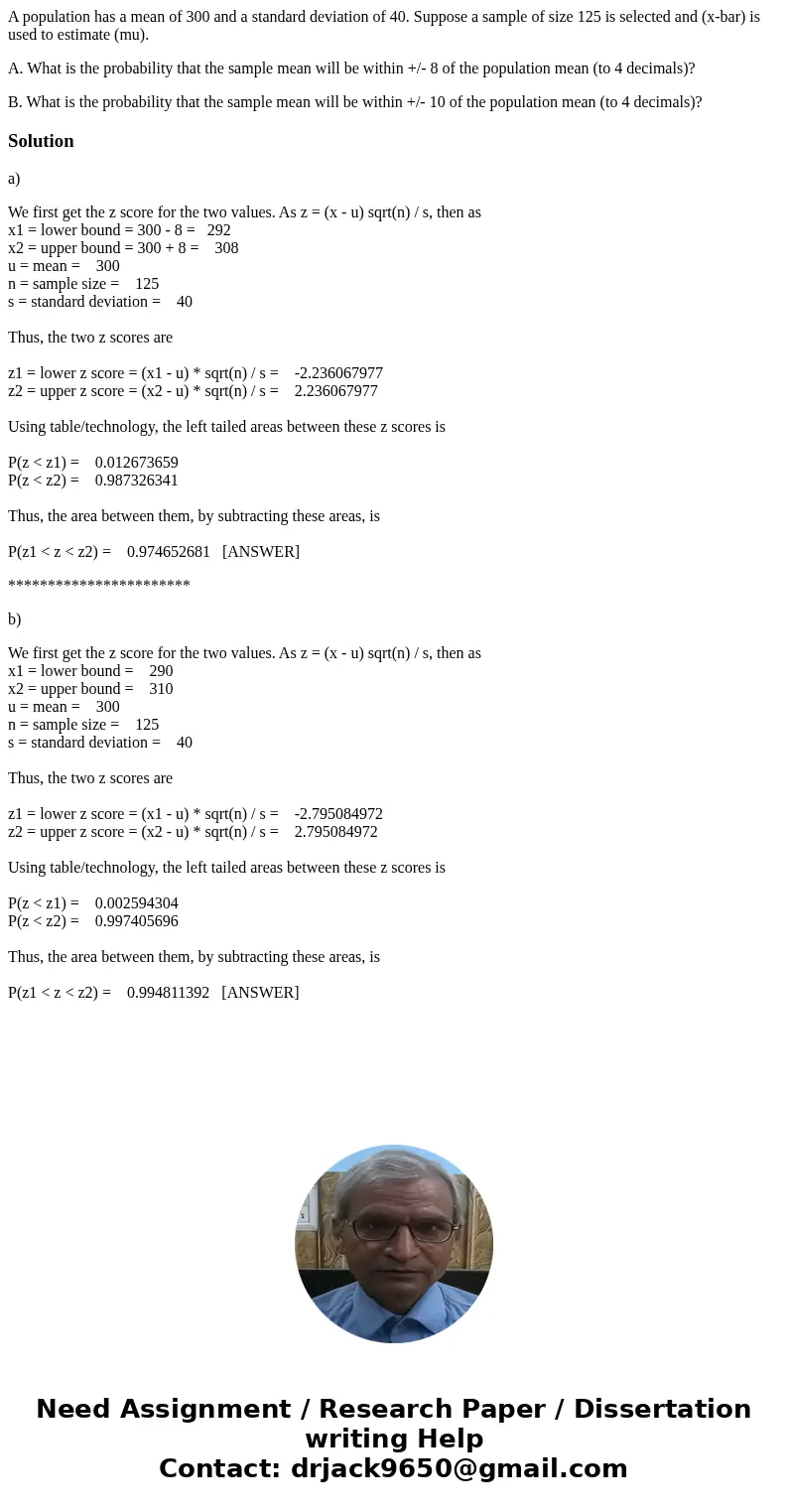A population has a mean of 300 and a standard deviation of 4
A population has a mean of 300 and a standard deviation of 40. Suppose a sample of size 125 is selected and (x-bar) is used to estimate (mu).
A. What is the probability that the sample mean will be within +/- 8 of the population mean (to 4 decimals)?
B. What is the probability that the sample mean will be within +/- 10 of the population mean (to 4 decimals)?
Solution
a)
We first get the z score for the two values. As z = (x - u) sqrt(n) / s, then as
x1 = lower bound = 300 - 8 = 292
x2 = upper bound = 300 + 8 = 308
u = mean = 300
n = sample size = 125
s = standard deviation = 40
Thus, the two z scores are
z1 = lower z score = (x1 - u) * sqrt(n) / s = -2.236067977
z2 = upper z score = (x2 - u) * sqrt(n) / s = 2.236067977
Using table/technology, the left tailed areas between these z scores is
P(z < z1) = 0.012673659
P(z < z2) = 0.987326341
Thus, the area between them, by subtracting these areas, is
P(z1 < z < z2) = 0.974652681 [ANSWER]
***********************
b)
We first get the z score for the two values. As z = (x - u) sqrt(n) / s, then as
x1 = lower bound = 290
x2 = upper bound = 310
u = mean = 300
n = sample size = 125
s = standard deviation = 40
Thus, the two z scores are
z1 = lower z score = (x1 - u) * sqrt(n) / s = -2.795084972
z2 = upper z score = (x2 - u) * sqrt(n) / s = 2.795084972
Using table/technology, the left tailed areas between these z scores is
P(z < z1) = 0.002594304
P(z < z2) = 0.997405696
Thus, the area between them, by subtracting these areas, is
P(z1 < z < z2) = 0.994811392 [ANSWER]

 Homework Sourse
Homework Sourse